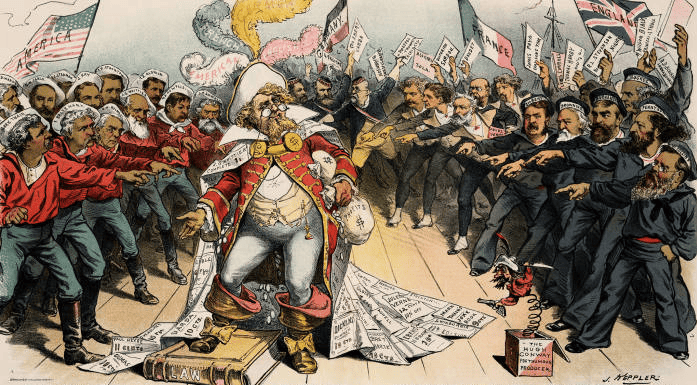As we discussed in this blog, the Digital Millennium Copyright Act (“DMCA”) is part of US copyright law that became effective in 1998.
Among other things, the DMCA creates a “safe harbor” for Internet Service Providers, website operators, and other internet-based businesses. This shields the businesses from liability for copyright infringement by their users as long as the providers follow the proper procedures.
Providers must have a process to accept notices from copyright owners who claim that their rights have been violated, that that the provers can remove the infringing material. These notices are known as “takedown” notices.
People who believe that materials they’ve posted were removed in error under the DMCA can also submit counter-notices.
In order to receive such notices, a provider must post information about who in the organization (the “agent”) is responsible for handling them. The agent’s contact information must also be registered with the Copyright Office.
Specifically,
The limitations on liability established in this subsection [of the DMCA] apply to a service provider only if the service provider has designated an agent to receive notifications of claimed infringement … by making available through its service, including on its website in a location accessible to the public, and by providing to the Copyright Office, substantially the following information: (A) the name, address, phone number, and electronic mail address of the agent [and] (B) other contact information which the Register of Copyrights may deem appropriate.
Under the DMCA, the Copyright Office must maintain a registry of these designated agents.
Until now, the registrations needed to be submitted old-school — on paper. The Copyright Office scanned these papers and converted them into PDFs.
This old-fashioned system hasn’t been well-maintained. In fact, many businesses have lost the protection of the DMCA by failing to update their agent information on their websites and with the Copyright Office.
Starting December 1, providers will be able to submit and update information online.
The detailed new rules are here.
Under the old system, providers had to pay $105, plus an additional $35 for each group of up to 10 alternate agent names. Under the new system, there will be a flat fee of $6 per designation.
Takeaway
This would be an excellent time to review your business’s DMCA policy and to update your agent information if needed.


